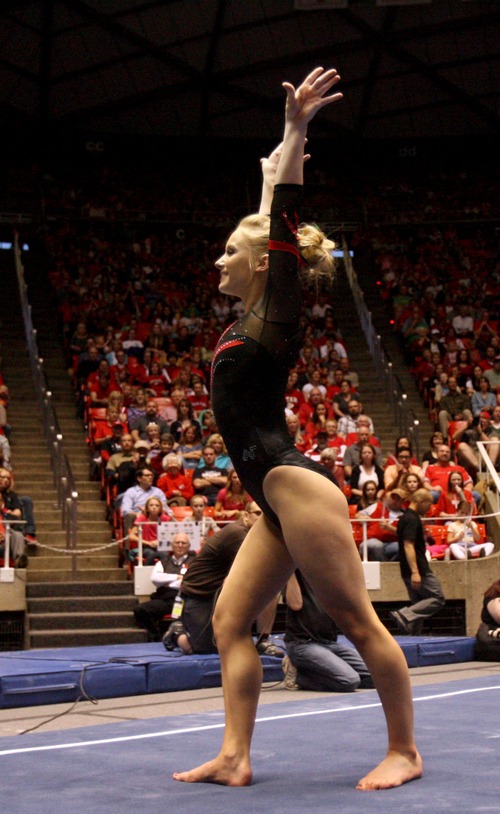Although she was 4 years older than me, my cousin Jennifer and I grew up doing just about everything together. When I was 11, I remember forcing her to watch 2004 Olympic Event Finals again and again with me. We always ended up laughing hysterically at Cheng Fei's floor choreography, making fun of Svetlana Khorkina's cheek bones and cringing during Allana Slater's beam fall. While we both had fun, I was undoubtedly way more interested in the sport than she was. When the scoring system changed, I attempted to explain the changes to her and was shocked by how she responded.
"Well, does it really matter?" she asked me. "Like, obviously they're not going to win if they fall or whatever, but the judges really can just give them whatever score they want, right?"
As a moody tween and an avid gymnastics fan, I was outraged that Jennifer just didn't understand the ins and outs of our complex sport. I grew older and I realized that this is quite a popular view amongst the general public. You may remember this summer, when
Yahoo! tried to rank the difficulty of each Olympic Event, the columnist claimed that gymnastics was not a sport and asked "how tough can it be to ... wink at some French judges?"
We, as fans, are outraged by the ridiculous notion that judges just arbitrarily "choose" who wins. But on some level, could this supposed misconception be correct? Clearly, there's a code of points in place which judges are supposed to follow. But what happens when they choose not to?
 |
| Kim Raff |
On Saturday night, the University of Utah Red Rocks faced off against the Florida Gators in a meet that will go down in history for all the wrong reasons. The Utes beat their season high by nearly 8 tenths. Judges scored 7 individual 10s, several of which included hops on landings. Georgia Dabritz nearly fell off of the beam and received a 9.8. "Home cooking" is always abundant in the NCAA. But, there's a difference between giving someone's slightly bent knees the benefit of the doubt and giving gymnasts who have significant errors a perfect score.
While the sport is, and will always be, somewhat subjective, there are rules. And as snarky as I was on twitter about the scoring at this meet, it's important to recognize that when judges make the choice to disregard the rules, they make a mockery of the sport. You can sugarcoat it in any way that you want, but the bottom line is : awarding gymnasts scores that they did not earn is cheating. The sport doesn't just lose fans when its judges so blatantly cheat, it loses the public's respect. And frankly, with age falsifications, public abuse scandals and the typical glitter and glam involved in the sport, gymnastics can't afford to lose any more respect.
 |
| Ravell Call |
In my mind, the most imperative question to ask is : what can we do to change this? It seems to me that this is a unique problem in NCAA that we don't see consistently in the JO, Elite or International Elite programs. The NCAA actually does a fairly good job of making sure that judges work a maximum of 2 home meets and 2 away meets per school, per season. The biggest flaw that I see is within the code. Judges can score .2 higher or lower in than their fellow judge when scoring above 9.6 and still have their scores "in range". This means that it is acceptable by the code for one judge can award a 9.8 and another a 10 for the same routine. In a competition where all 12 competitors are regularly fewer than 2 or 3 tenths apart, this should not be acceptable. I wish that the NCAA Code would change to become more like the elite code and narrow the acceptable range. To expect scores above 9.6 to only be .1 apart seems reasonable to me. If this range is not met, NCAA judges should be forced to reevaluate.
Something has to change. Utah's scoring was an embarrassment. I encourage you to watch routines, particularly Tory's Vault and Bars and Georgia's Beam and ask yourself, "Did judges award scores based on how they TRULY thought the gymnasts performed, or did they disregard the rules to gain approval from 16,000 fans?" I know what I think.


